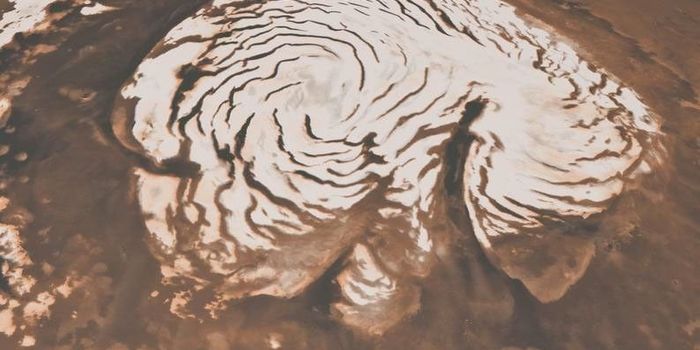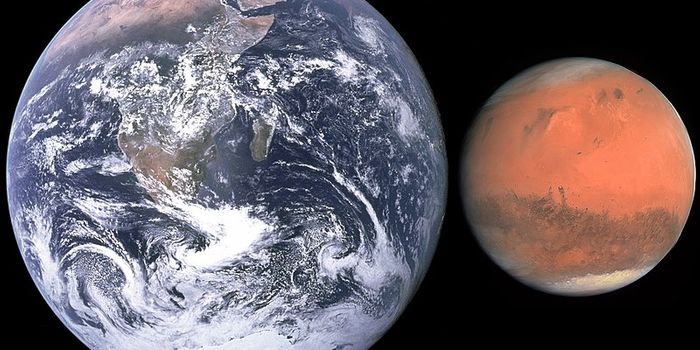Earth's Oldest Fossils Discovered in Quebec
A new study published in Nature features the mineralized remains of what the team of scientists from University College London think to be bacteria that lived some 3.77 billion to 4.28 billion years ago. The oldest fossils to date before this, in Greenland last August, were found to be 3.7 billion years.
The microscopic bacteria aren’t much to look at, and there’s even some controversy as to whether or not these fossils were actually once living. But on the assumption that they were, these organisms were quite tiny - smaller than the width of a human hair, in fact. The tiny filaments and tubes formed that formed the fossils would have been made by bacteria that lived on iron erupting from hot vents in the 140F (60C) oceans which covered the early planet. They were found encased in quartz layers in the Nuvvuagittuq Supracrustal Belt (NSB), Quebec, Canada, according to ScienceDaily.
Time Magazine writes that the microscopic filaments and tubes were discovered in a rock type called jasper. The filaments are composed of an iron oxide called hematite and one strand may represent a chain of cells.
"Our discovery supports the idea that life emerged from hot, seafloor vents shortly after planet Earth formed. This speedy appearance of life on Earth fits with other evidence of recently discovered 3,700 million year old sedimentary mounds that were shaped by microorganisms," explained first author, PhD student Matthew Dodd (UCL Earth Sciences and the London Centre for Nanotechnology).
Which is why the scientists are interested in extrapolating this discovery to learn more about early-Mars. Their evidence suggest that similar organisms could also have evolved on Mars, “which at the time still had oceans and an atmosphere, and was being bombarded by comets which probably brought the building blocks of life to Earth,” reports the Telegraph UK. The obvious curiosity within this investigation is if life exists or existed on other planets.
“Early Mars and early Earth are very similar places, so we may expect to find life on both planets at this time,” said Dodd, the lead author of the study which was co-funded by NASA. “We know that life managed to get a foothold and evolve rapidly on Earth. So if we have life evolving in hydrothermal vent systems maybe even 4.2 billion years ago when both planets had liquid water on their surface, then we would expect both planets to develop early life.
“If we do future sample returns from Mars and look at similarly old rocks and we don’t find evidence of life then this certainly may point to the fact that Earth might have been a very special exception, and life may just have arisen on Earth.”
Sources: Time Magazine, ScienceDaily, Telegraph UK











